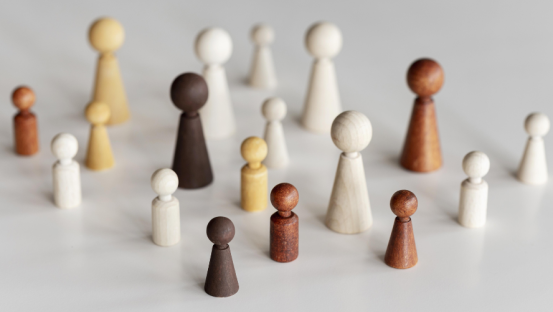Social Distancing: Strategies to keep loneliness at bay

The most recent coronavirus disease, COVID-19, is currently at the forefront of many speakers’ — well, everyone’s — lives.
The World Health Organization (WHO), the U.S. Centers for Disease Control and Prevention (CDC), and local health authorities have been sharing valuable information on how best to protect yourself, your family, and the broader population. (For helpful links, please visit “COVID-19: Essential information for public speakers”
Social distancing is a key emergent recommendation. In most cases, it’s the best decision for keeping both yourself and others healthy.
However, if you have gone from a very busy business and social life, constantly on the go between meetings, speaking, training, and networking events and conferences, switching to isolation can be challenging—loneliness can lead to additional stress.
According to WHO, individuals in isolation are one group that may feel the impacts of the new coronavirus outbreak on their mental health the most. To combat loneliness, the organization advises people in self-isolation or self-quarantine to "stay connected and maintain your social networks".
This can be an opportunity to think creatively about what is possible. The internet has made us more connected than at any time in history.
Humans are social creatures who thrive by having networks, and we’ll instinctively try and build one where one doesn’t already exist.
A network of other speakers, solopreneurs, and people from your industry can help you by:
-
Advising you on problems or issues that come up that are specific to what you are going through right now, i.e., speaking, or the running of a speaking business in the current crisis.
-
Highlighting new trends or tools or processes that can help you, for example, helping you find the right video equipment for your virtual presentations.
-
Providing emotional support during this time.
-
Working with you when making important decisions about your business, and designing business plans to move forward with.
If you don’t have a community of people that you can reach out to already, you will need to find one, and if one doesn’t exist, you can build it.
Investing time and energy into creating this network will help you stay balanced, help keep the loneliness at bay, and potentially help you with your business.
This article will look at some strategies for building an online network to help you feel connected at this time of isolation.
Where do you even start?
1. Finding your network
It can seem that no matter where you turn you are confronted with the coronavirus COVID-19, and social media can seem overwhelming. But it can also be a tool for pulling together.
Use your list of contacts, followers, and friends, and make connections with other solopreneur speakers and trainers, mentors, business advisors, or people from your industry.
What you are looking for is a group of people who you can message with, video chat, or call up on a semi-regular basis to connect and talk to.
Ask them how they are handling the social distancing and what strategies they are implementing. Offer ideas of your own, ask if you can talk about the issues you are currently facing, ask for candid advice, or talk to them about your upcoming projects and events.
Private messaging and private groups can be useful here if you need to create a less formal space where there won’t be negative consequences for airing any frustration or being vulnerable.
That being said, it depends on you and your brand—publicly asking for advice or for people to join a network of pros you are creating might also work to your benefit.
2. Create a group chat or set up an online-meet up
Once you have a group of people you can connect with, schedule calls with them, and check-in with them regularly over the next few days and weeks.
If you are just starting out, find one or two people with whom you have a particular affinity, and zero in on building a more substantial working relationship with them.
Imagine them kind of like partners who you regularly bounce ideas off and help each other by advising on current projects and content.
Once you’ve talked with them a few times, build the network out. There are tons of options for group chats from Facebook, Whatsapp, Slack… Ask around and see which tools the members of your group are most comfortable using.
Start inviting more people and encourage them to invite others too.
Don’t feel restricted to rely entirely on one-on-ones, building a bigger group can be more engaging, encourage the crossover of ideas, and can help others who might be struggling with social distancing right now.
3. Finding and building your online tribe/community
Social media is like real life: you need people around you to support you. Offline, this is your family, your friends, your close co-workers and contemporaries. But you can have the same kind of support online with people you have never met offline.
What exactly is a tribe or online community? The short answer is a cluster of people with a shared purpose who use a dedicated online space to express their thoughts, build networks, collaborate, and add value to each other.
1. Pick your platform thoughtfully.
Understand the differences between platforms, and choose the one that will best suit your needs for being a part of an online community right now. This may be a completely different platform from the one that is best for marketing yourself.
Try searching out groups of speakers that already exist on Facebook, Reddit, or LinkedIn, or start creating your own with other speakers you have met.
Facebook has a variety of groups for solopreneurs of all kinds to share opportunities, thoughts, feelings and newsworthy announcements, and Reddit threads can be a great place to have some intellectual banter. You will most likely find a ton of professionals in the same boat as you on LinkedIn.
You may even want to try a few different groups first, and if none of them suit you—build your own.
Below are some tips for developing non-marketing relationships on social media
A. Be genuine
Sometimes with online marketing material, speakers feel they have to be their best and most professional selves; in a private group you have the ability to let your hair down a bit.
Don’t be forced. Just focus on being yourself—honest, open, and authentic.
B. Earn trust
As with any relationship, respect and support take time to grow. If you just pop on to the group once and post about how frustrated and lonely you are feeling, you might get a few sympathetic responses, but it will probably be a bit empty.
Just as with any friendship—no one wants someone to just come in and dump a bunch of negativity on them without balancing it out.
Instead, work on checking in with a group regularly and supporting others. Then, when the time comes where you need a bit of support, the community will be there to help you.
C. Be open about what you need
Do not be too scared or embarrassed to say what you need. Instead of just posting that you are feeling lonely and upset, think about what you really need and ask for it.
Maybe you need some empathy? Ask people to tell their stories if they are going through the same feelings and frustrations.
Maybe you need some inspiration? Ask if the group has any ideas on what you can do from home, to get inspired.
Maybe you just need a bit of encouragement? Don’t be afraid to ask for it, ask people to send you their favourite motivating quote, or just give you a virtual pat on the back.
Or maybe you simply need to vent? Tell the group that you just need to blow off some steam, and let them know how you’d like them to respond, for instance with a gif or meme.
Reach out and ask for what you need, add support wherever you can.
Wrapping it up
Right now it can seem that no matter where you turn you are confronted with the coronavirus COVID-19, from the news and social media, or daily life such as grocery store lines and school closures.
Aim to take action in ways that you can by following the WHO recommendations for social distancing and your countries protocols, but also add some normalcy and joy where you can.
Keeping to your routines or building new ones (like family meals or a new at-home exercise program) can be helpful, as can focusing on the positives and helping others wherever we can.
While there is so much we can’t control in terms of the coronavirus, we can make good choices to stay healthy and connected.
Some of the content from this article was taken from “Problems solopreneur speakers face and how to solve them: Part #3: It gets lonely” published on SpeakerHub in 2018.
What to read next
Interested in being listed on SpeakerHub? We are the fastest growing speaker’s network. Sign up here.






